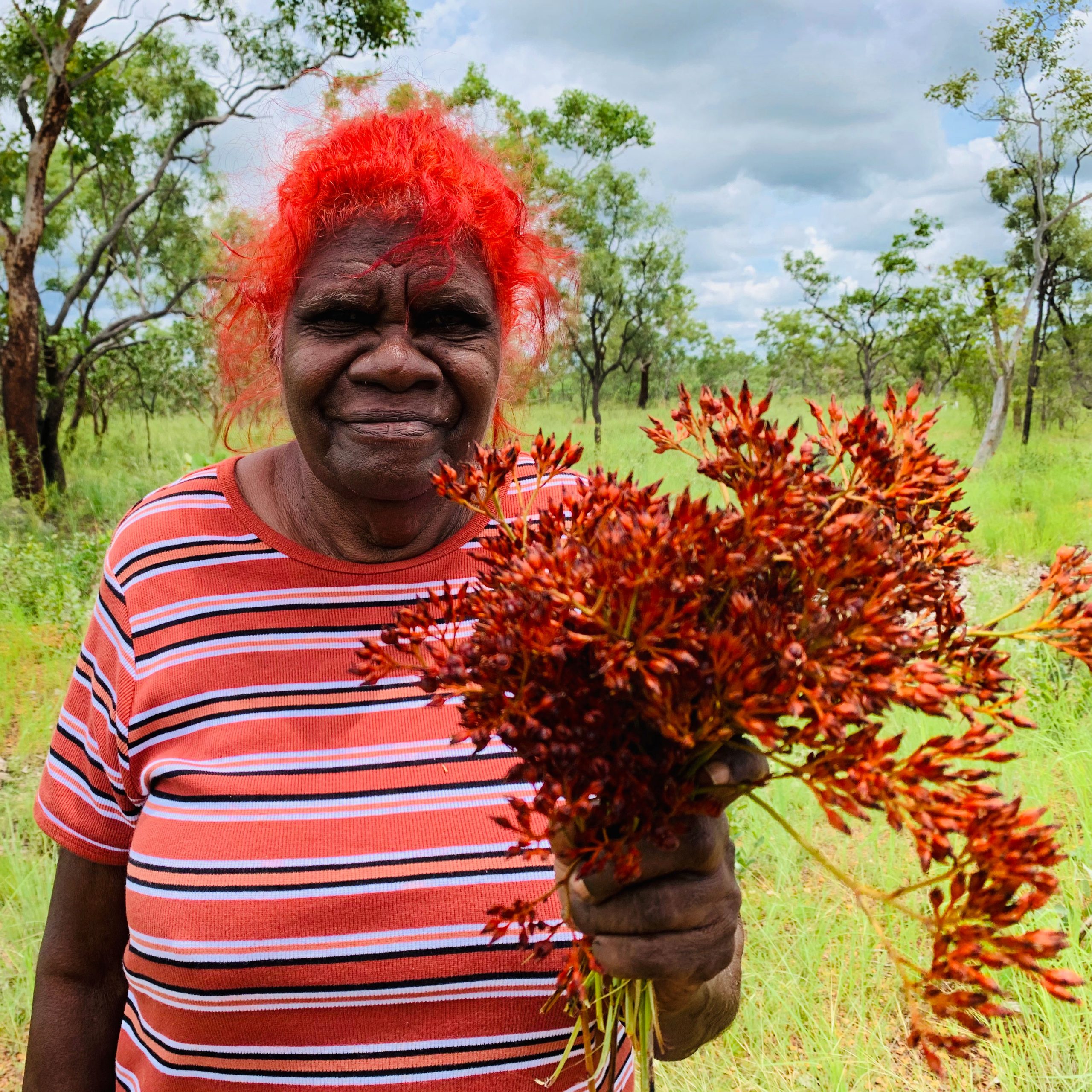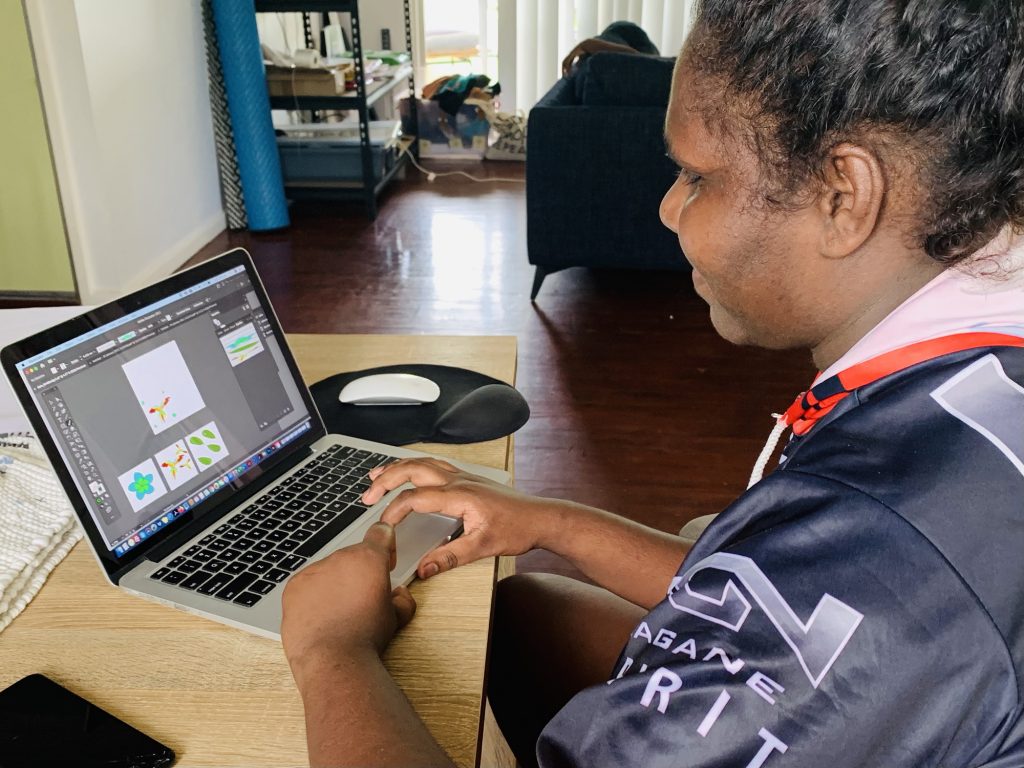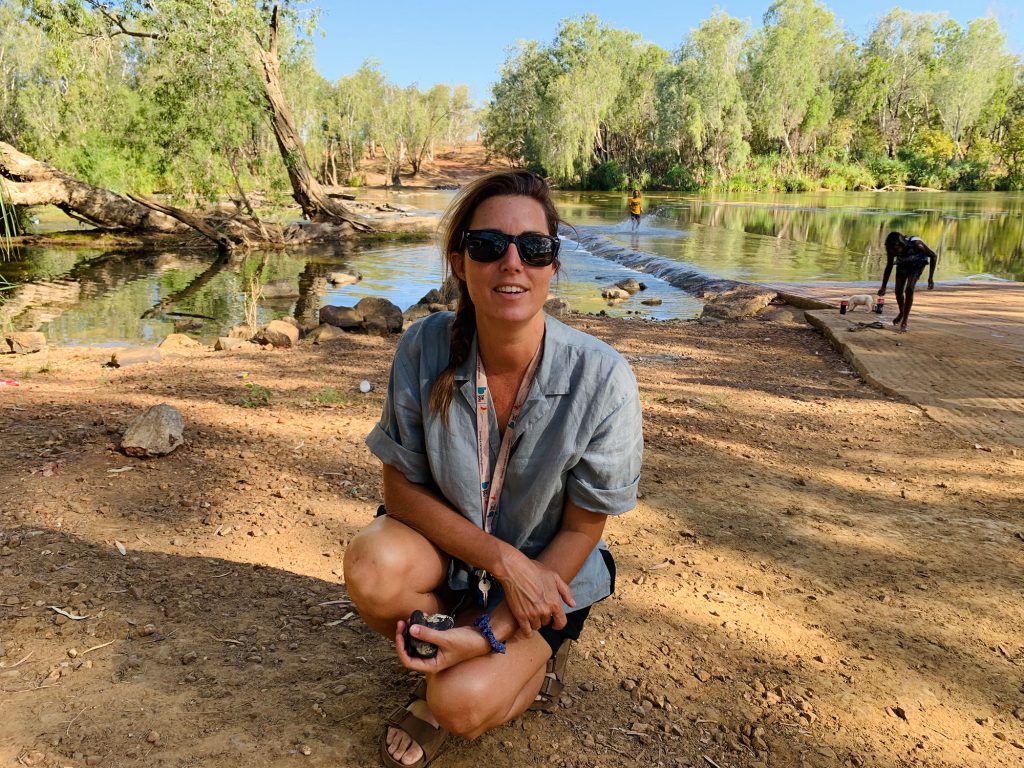
26 Jan Why invest in Indigenous Women in Entrepreneurship in remote Australia?
Mothers, sisters, aunties, and grandmothers have traditionally enjoyed great respect and their significant contribution to the social, cultural, environmental and economic value of Australia has been transformative.
However, despite having an abundance of strengths, skills, and knowledge, Aboriginal women still remain one of the most marginalised groups in Australia, and since colonisation they have experienced persistent and systemic social and economic exclusion. It is therefore essential that Aboriginal women are given the authority to freely be in control of their own economic development in order to ensure Australia has a strong, diverse, and inclusive economy.
For Aboriginal women living in remote areas of Australia, entrepreneurship is a particularly effective means for them to take control of their economic future as well as that of their families and communities. The not-for-profit organisation Circulanation, is responding to the barriers that prevent Aboriginal women and girls from pursuing self-determined participation in the economy by ensuring that entrepreneurial education is accessible to those living in remote areas of the Northern Territory.

“Circulanation partner with Aboriginal communities that are underserved due to their remote geographical location, and smaller population size. In 2020 we have been working intensively in the Roper Gulf Region, Northern Territory. The entire region is classified as very remote and covers an area of 186,000 square kilometres – almost three times the size of Tasmania – with a relatively small population of around 7100, roughly 1 person for every 26 sq km,” explains Circulanation’s CEO, Tanya Egerton.
“Although there exists a strong desire for economic participation, for Aboriginal women in the region there are very few opportunities for employment, and Indigenous enterprise development and job creation is essential,” she adds.
In October 2020, the Australian Human Rights Commission, released the report Wiyi Yani U Thangani (Women’s Voices): Securing Our Rights, Securing Our Future, in which Aboriginal women and girls from across the country shared their motivation for change and their aspirations for Indigenous businesses and economic development. The report highlighted the calls for increased investment in Aboriginal and Torres Strait Islander-led enterprises and development programs as well as recognition of the commercial advantages and social returns of investing in Indigenous business.
However, Tanya highlights that there are significant barriers to obtaining startup business support services for Aboriginal women in remote Australia. “To be eligible for startup assistance women are required to have proof of a viable business idea, as well as evidence of business capabilities. This can require a fully conceived product, team, business plan, and product testing, involving substantial investment and advanced business knowledge. The majority of Aboriginal women in remote Northern Territory cannot meet the entry threshold of what is required,” she said.
“With an over saturation of organisations providing business incubation and acceleration support to start-ups, and so few Aboriginal people eligible to qualify for assistance, it was clear there was a greater need to invest in the development of entrepreneurial capabilities for individuals and communities in the pre-idea phase,” Tanya added.
In 2020, Circulanation received support from the National Indigenous Australians Agency to deliver an early-stage entrepreneurship program in partnership with the remote Aboriginal community of Urapunga, located 600 kilometres south-west of Darwin in the Northern Territory. Urapunga Elders supported the co-implementation of the program pilot which resulted in positive feedback and outcomes for women and girls in Urapunga.

“The Ignite Entrepreneurship Program is designed to build enterprise skills and explore business ideas that can subsequently be taken forward to start-up stage,” Tanya explains.
“Ignite is an inclusive, low-risk, and culturally affirming educational program, where women are not required to come with an idea or previous business experience. It is delivered in community, and is focused on experiential learning, incorporating local knowledge into the learning journey.”
“The program allows everyone to explore, understand and apply business concepts in a safe and supported environment. It reveals to the individual their true entrepreneurial potential and equips them with the skills and mindset required to move forward through the business lifecycles,” she says.
The outcomes of investing in early-stage entrepreneurial capacity building contributes to ensuring the long-term economic security of Aboriginal women. Four key outcomes from this investment are highlighted:
1. Building entrepreneurial capabilities increases the capacity of Aboriginal women to establish sustainable enterprises that provide long-term self-employment and meaningful jobs for others. Data shows that Indigenous businesses are 100 times more likely to employ Indigenous workers (Centre for Aboriginal Economic Policy Research, ANU (2014).
2. Investing in the development of transferable enterprise skills including problem solving, financial literacy, digital literacy, teamwork, and communication increases employability, education, and career pathways as well as creates opportunities for self-employment and business creation.
3. Encouraging culture as a vehicle to engage in the economy increases pride, confidence and agency. It enables women to believe in and value their own knowledge and capacities.
4. Culturally affirming entrepreneurial programs increase leadership capabilities and builds an alliance of Indigenous women entrepreneurs who can advocate for the principle of equity and inclusion.
By providing greater investment in Aboriginal women’s entrepreneurial abilities and growing the Indigenous economy can be transformative for women and their communities, and by extension, the entire country.

In conclusion Tanya reflects, “it is my view that it is the responsibility of all Australians, Indigenous and non-Indigenous, to actively participate in the creation of an inclusive and sustainable economy.”
“As an Entrepreneurial Educator and a non-Indigenous woman my role is one of allyship to Aboriginal women and girls. I’m simply there to listen and learn, and to facilitate and enable their aspirations,” she said.
(Original story posted on Women’s Agenda)
